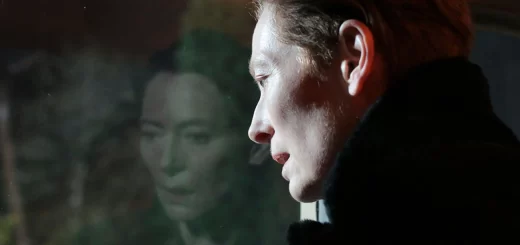Parasite: Leveling Up, by Scott Nye

Earlier today – at least, the “today” on which I’m writing this – an acquaintance on Twitter jokingly asked if it even counts as a review of Parasite if your headline doesn’t immediately call it out as a masterpiece, as nearly all of them do. Ours won’t, but probably only because we don’t tend to do those types of “summary” headlines anyway. The truth is that from the moment Parasite starts to, as I can now attest, months after it ends, it provides such an overwhelming sensation of its own perfection that it’s hard not to fall into superlatives almost immediately. Director/co-writer Bong Joon-ho’s latest film is virtually everything one could desire in a contemporary film – urgent, of its moment (yet not beholden to it), nail-bitingly intense, hilarious, mysterious even when it seems to be revealing itself, brilliantly plotted, and captivatingly performed. It is at every turn unpredictable yet just right.
It is about a very very poor family, and a very very rich one, and how the former tries to become the latter, and maybe does, and maybe absorbs more than they desired. It is about the illusions wealth creates both for those who have it and those who can only look in from the outside. It is about being utterly left behind, desperate for just a little recognition. It’s about that aesthetic that has been so lovingly cultivated in South Korea over the past twenty years, of colors that are both heavily-saturated and slightly dim, of very precisely-performed-and-more-than-a-little-odd behaviors and gestures, of seemingly simple moments – a woman resting her head on a table, an ascent up a staircase, a family settling into a tent – captured from an angle that suggests grotesquery lurks just underneath the surface. Wealth is portrayed in near-villainous terms, the house a sleek, modern, spotless fortress of impersonal familial congress, and poverty a nearly unlivable den of despair and rot.
Political concerns have been at the fore of Bong’s films at least since The Host, and class inequality has been a presence in each of those films to varying degrees. While he has found international success with his more fantastic ventures, the relative simplicity of this and Mother bring out his best traits. His wit and somewhat cruel sense of irony cut deepest when there isn’t some extra-worldly element to pass it off on, the thrills all the more tantalizing when the tension comes from something as simple as being found out under a table by people you expected to exit the room hours ago.
Characteristically, that wit, the cleverness of the plotting, and the amusement of the performances obscure some considerable heart in the film that comes pouring out towards the end, taking us off guard one last time by engaging an emotional range heretofore only suggested. Sentiment in cinema, especially its sudden presence at the end of a film, has a way of masking a film’s defects, but that persistent suggestion is what makes it bind. The look on dad’s face as he endures yet another tiny, momentarily hilarious humiliation. The sentiment opens a new portal to the film, a way to reconsider even further what already felt so tremendous.
I haven’t really gotten into the plot of the film, nor will I. Its surprises would remain fun, and certainly even the most immediate of them would not “spoil” too much. But like all great films, Parasite is a whole object, not a series of happenings; the joy of watching it stems from the sensation that it is emerging from the screen right at that moment in front of you, born from the collective desires and private nightmares of you and everyone else in the room. It’s the kind of popular cinema that deserves to play wide, to any audience with an ounce of curiosity and a yearning to see that always just a little dissatisfied, for true curiosity is never satiated.





























